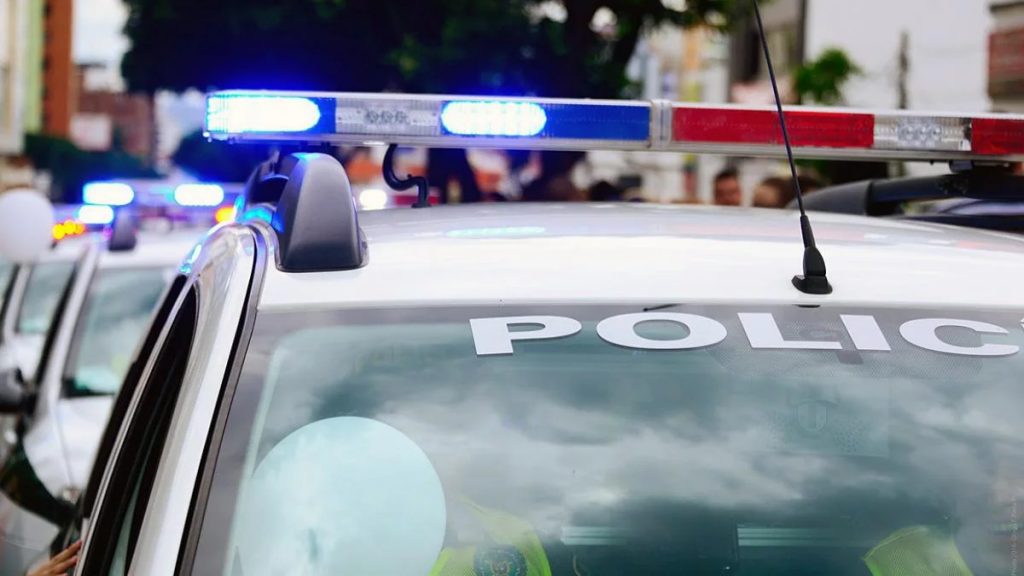
The Bachelor of Science in Criminal Justice has been offered online for 15 years in partnership with Penn State Harrisburg’s School of Public Affairs and Penn State World Campus.
More than 700 students have completed the Bachelor of Science in Criminal Justice program through Penn State World Campus since it was first offered 15 years ago.
Online education was still relatively new when the program began in 2006, and not everyone was sure that taking the program online made sense, said Shaun Gabbidon, distinguished professor of criminal justice in Penn State Harrisburg’s School of Public Affairs. But he and other faculty members persevered, and the program “has been a hit ever since,” he said.
Justin Loughrey, a contracting officer with the U.S. Air Force based in North Dakota who expects to graduate in 2022, said he was initially reluctant to take courses online but “could not have made a better decision.”
“From my adviser, professors, and classmates, the experience has been incredible,” Loughrey said.
More than 200 students are currently enrolled in the Bachelor of Science in Criminal Justice, which prides itself on offering small course sizes with all the resources of a large research university, according to Jennifer Gibbs, associate professor of criminal justice and coordinator of the B.S. program. Students can learn about criminology, policing and corrections, ethics in criminal justice, and alternatives to incarceration in the 120-credit undergraduate program.
Students can take part in student-faculty partnerships and conduct research with faculty, said Gibbs.
“That opens doors for students and gives them a leg up for grad school or with future employers.”
Gibbs, whose research focuses on policing, said she opens her own research projects to all her students. Courses are capped at 35 students and more advanced ones at 25, she said.
Criminal justice faculty members get to know students in the program and their career interests well, which helps them connect students to professionals in the field, Gibbs said.
Many students in the program are nontraditional students, including military students who are stationed overseas or deployed mid-semester. The breadth of experience is “just fantastic,” Gibbs said. “There are people with all levels of experience. It brings such a rich diversity to the discussions.”
Students can also take courses in victimology, security, and police administration; aspects of the juvenile justice system; and border security, and they participate in a criminal justice internship.
Alumni have gone on to law school and into academic research, to become police and correctional officers, to work in parole and probation offices, and to work in social services and juvenile justice, Gibbs said.
Melissa Eccleston, a current student, has been a police officer in Cortland, New York, for 15 years. She said the research she did for one of her courses on the effects on police officers of rotating shifts helped persuade her department to change from rotating shifts every four weeks to permanent shifts.
“Police officers who have been on the job a while can get stuck in that ‘old way’ mentality,” she said. “Taking these classes has broadened my perspective.”
The bachelor’s in criminal justice is one of the undergraduate- and graduate-level degree programs in law and public policy that is offered online.
The program recently expanded to offer an associate degree in criminal justice, as well. Many of the courses leading to the associate degree can be used to satisfy bachelor’s degree requirements if a student applies and is accepted into that program.
Theresa Robbins, who graduated with a bachelor’s degree in criminal justice in 2014 and is now pursuing a doctorate in the field, said she has friends taking graduate-level forensics classes at other schools who are just learning what she learned in her undergraduate crime scene investigations course through Penn State World Campus.
Robbins said she was impressed by her instructors’ commitment to modeling techniques and applications in lessons. That was true for all of her classes, she said.
“It wasn’t just, ‘Here’s the material, learn it on your own.’”
Learn more about the Bachelor of Science in Criminal Justice that is offered online through Penn State World Campus.




